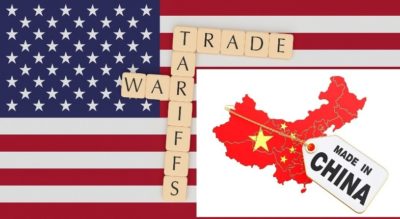By Bruce Leeds, Senior Counsel, Braumiller Law Group
On March 22, the President announced that the United States will be imposing special duties on certain Chinese products in retaliation for claimed theft of U.S. intellectual property rights and the use of pressure and intimidation to obtain trade secrets. The proposed actions against China also included restrictions on Chinese investment in U.S. technology firms and the temporary suspension of the special duties on steel and aluminum products from many other countries – leaving China as the primary target of the steel and aluminum duties.
These actions are the result of recommendations by the U.S. Special Trade Representative under Section 301 of the Tariff Act of 1974. Section 301 authorizes the President to “take all appropriate action, including retaliation, to obtain the removal of any act, policy, or practice of a foreign government that violates an international trade agreement, or is unjustified, unreasonable, or discriminatory, and that burdens or restricts U.S. commerce.”
The President’s actions fulfill his frequent campaign pledge to demand fairer trade deals with nations around the globe and to retaliate against trading partners if the United States does not secure better agreements.
The duty increases will affect a number of products made in China. A proposed list of affected products identified by HTS classification was published by the U.S. Trade Representative on April 3, 2018. There will be a comment period with written comments due on May 11, followed by a public hearing on May 15. The office of the U.S. Trade Representative, and probably other U.S. Government agencies, will review the comments. The new tariffs and duty rates will probably commence after close of the comment period. This would make them effective around mid-summer.
A number of major retail and trade organizations in the U.S. urged the President not to enact these special duties, because the impact would be felt by industry and consumers. The administration counters that the tariffs are intended to protect U.S. industry and intellectual property rights.
The list of affected Chinese products was developed by identifying those products that benefit from the Chinese practices that the U.S. Trade Representative has complained about. Several U.S. Government agencies assisted the U.S. Trade Representative in this effort. If special duties on some of these products would disrupt the U.S. economy, they were removed from the list. The final list published by the U.S. Trade Representative consists of those products which would have the least consumer impact.
The list of affected imported Chinese products is long, but includes some of the following:
- Organic chemicals and pharmaceuticals
- Iron, steel, and aluminum and products
- Turbines, engines, motors, and components
- Pumps, compressors, and various types of production machinery
- Construction and agricultural equipment
- Printing machinery
- Textile-related machinery
- Many types of machine and hand tools
- Computer storage units and related components
- Recorded tapes and optical media
- Televisions, monitors and components
- Capacitors, resistors, and transistors
- Motor vehicles and motorcycles
- Aircraft and components
- Vessels
- Electronic and optical instruments
To view the complete list, and obtain more information on the background and the Federal Register notice, go to www.ustr.gov, click on the Initiatives tab, then go to Section 301 Investigations.
As would be expected, China is proposing retaliatory measures against exports of U.S. products to China. China’s commerce ministry has published a list of 128 U.S. products for an additional 15% duty. These products include soybeans, corn, cotton, beef, frozen orange juice, even tobacco and whiskey. U.S. manufactured products, including automobiles and parts, plastics, aerospace products and chemicals are also targeted. Many of those products are also sold by European companies, giving Chinese buyers alternatives to purchasing from the U.S. In addition, China has threatened legal action under the World Trade Organization rules.
U.S. importers should be aware of the danger of transshipment. This is where Chinese products subject to the special duties are shipped to a third country and relabeled as products of that country then sent to the U.S. This practice is illegal and could result in big problems – including seizures, penalties, and even criminal charges – for anyone who is a party to transshipments. U.S. Customs & Border Protection will be zealous in pursuing violations of the transshipment rules.
These certainly look like interesting times!

























